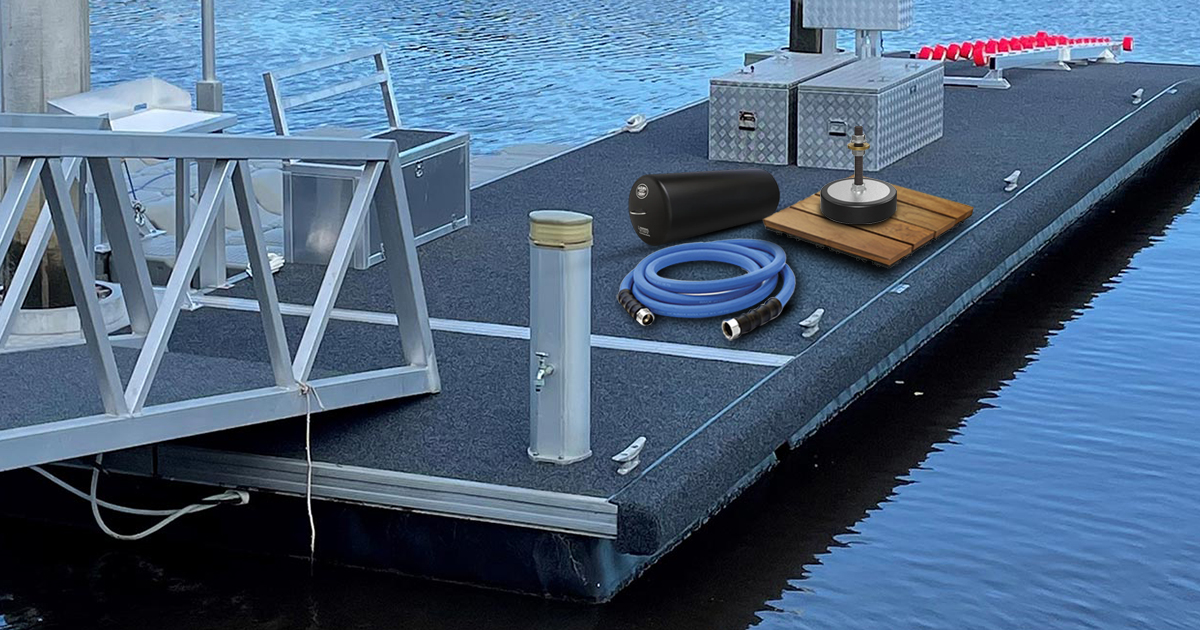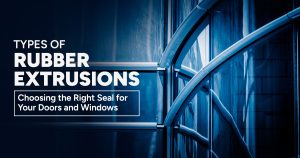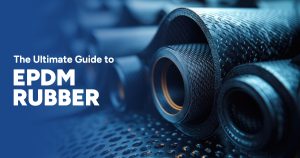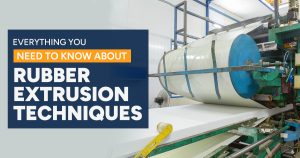Rubber has been utilised for a long time in marine environments due to its adaptability and resistance against harsh environments. Custom rubber extrusions are a perfect fit for the marine sector since they heavily rely on materials that can withstand harsh environmental conditions. These include exposure to saltwater, UV rays, and extreme temperatures.
Materials such as rubber and PVC (Polyvinyl Chloride) play critical roles in various marine applications due to their durability, flexibility, and resistance to corrosion.
In this blog, we explore the top five applications of these materials in the marine industry and talk about their resilience and versatility on the sea.
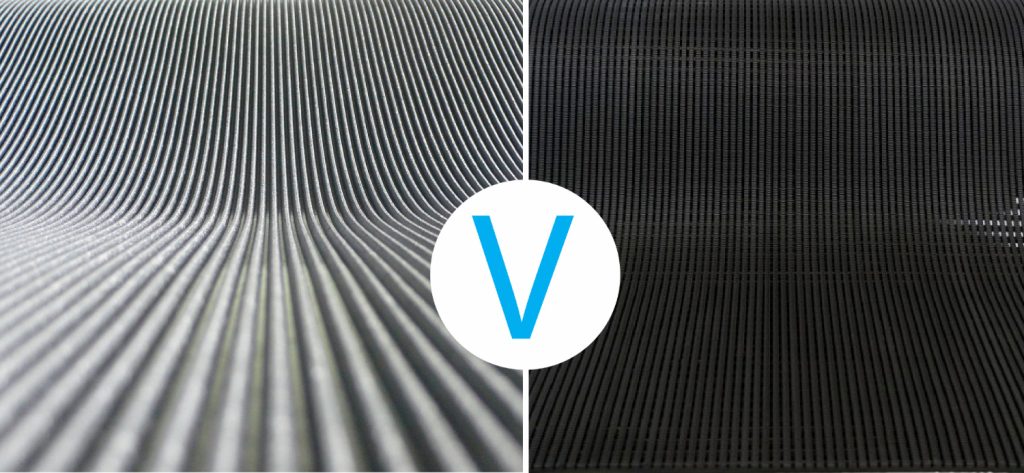
Why is Rubber Ideal for the Marine Sector?
Rubber’s durability includes resistance against saltwater, UV radiation, chemicals, and oil, making it a reliable long-term choice. Furthermore, its flexibility enables it to absorb vibrations and impacts, which reduces wear on equipment while increasing safety.
Rubber is well suited to marine use due to its unique properties that enable it to withstand the challenging marine environment. This enhances its ability to bond with metal components, making rubber adaptable for sealing purposes and shock absorption which ensures structural integrity on vessels or marine structures.
Top 5 Uses of Rubber & PVC in Marine Applications
1. Marine Fenders & Bumpers
Marine fenders and bumpers constructed of rubber are essential in protecting vessels, docks, and other marine structures from damage during docking or mooring operations. Rubber’s elastic qualities and resistance make it the ideal material to absorb collision energy and minimise any significant damage. PVC may also be added for added flexibility and weather resistance. These materials in combination with fenders can be found on boats, ships, ports, and harbours to provide a protective cushion and minimise the risks.
Key Benefits
- Absorbs collision energy, reducing damage.
- Protects vessels and docks from scratches and dents.
- Low maintenance and long-lasting performance.
2. Hoses and Seals
Marine industries rely heavily on rubber and PVC hoses for various tasks, including fuel transfer, water intake or discharge, and chemical handling. Rubber hoses are valued for their flexibility, durability, and resistance to abrasion, while PVC ones offer lightweight construction with corrosion and chemical resistance properties. Furthermore, rubber seals and gaskets are frequently employed to seal leaks while maintaining watertight integrity and safeguarding against environmental contaminants.
Key Benefits
- Rubber hoses: Flexible, durable, abrasion-resistant.
- PVC hoses: Lightweight, corrosion-resistant, chemical-resistant.
- Rubber seals: Prevent leaks and protect against contaminants.
3. Decking and Flooring
Rubber and PVC materials are increasingly popular for decking and flooring solutions in marine environments. Rubber flooring provides top-notch slip resistance, comfort underfoot, and resistance to UV degradation, which makes it a perfect choice for boat decks, pontoons, and marinas. PVC flooring is lightweight in this aspect, easy to install, and resistant to moisture and stains. Both PVC and rubber materials are durable enough to withstand heavy foot traffic and exposure to saltwater, thus offering long-lasting protection and aesthetics at the same time.
Key Benefits:
- Rubber flooring is slip-resistant, UV-resistant, and comfortable underfoot.
- PVC flooring is moisture-resistant, stain-resistant, and easy to install.
4. Vibration Dampening Components
Marine vessels are susceptible to significant vibrations from engines, waves, and operational activities. This is why rubber is an ideal material for creating vibration-dampening components like engine mounts, bushings, and pads that help reduce noise and vibration on board while simultaneously minimising wear and tear on mechanical parts. Furthermore, the anti vibration pads flexibility and resilience make rubber an effective solution for isolating and absorbing vibrations in marine settings.
Key Benefits:
- Reduces noise and vibration.
- Minimises wear and tear on mechanical parts.
- Enhances onboard comfort.
5. Flexible Connectors and Bellows
Flexible connectors and bellows constructed of rubber or PVC are widely used on ships and offshore platforms to accommodate movement, absorb expansion or contraction, prevent stress to the piping system, extend its lifespan, and ensure safety and stress-free operations. Rubber or PVC bellows offer superior resistance against seawater, oil exposure, chemical exposure, and UV light exposure, making them suitable for various marine environments.
Key Benefits:
- Prevents stress and damage to pipes.
- Extends the lifespan of marine systems.
- Resists seawater, oil, chemicals, and UV exposure.
Advantages of Using Rubber & PVC in Marine Applications
Rubber is known for its flexibility, durability, and shock absorption, while PVC is lightweight, resistant to chemicals, and easy to mould. These properties are crucial for marine applications where the materials must withstand constant exposure to water, salt, and sunlight.
- Durability and Longevity: Both PVC and rubber materials offer long-term solutions that minimise the need for replacements.
- Cost-Effectiveness: The initial investment for rubber and PVC products is often balanced by their low maintenance and extended lifespan.
- Safety Benefits: They provide non-slip surfaces and secure seals which enhances safety on marine vessels.
Conclusion
Both rubber and PVC play a vital role in marine applications, which range from protecting vessels and docks to ensuring the durability and efficiency of various marine operations. These unique properties make them indispensable materials for the safety, functionality, and longevity of marine equipment and structures.
As marine technology advances, these materials allow the industry to navigate the sea with confidence and offer them various benefits. While choosing rubber moulded parts for marine applications, it is necessary to consider multiple factors along with reputable industrial rubber suppliers who deliver accurate results.
At Ambassador Industrial, we offer customised rubber extrusions that suit your needs and are available to guide and assist you in selecting the best quality rubber solutions that suit your needs. Contact us now by calling us at +61397965588 or mail us at info@ambassindustrial.com.au.

